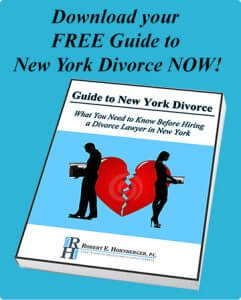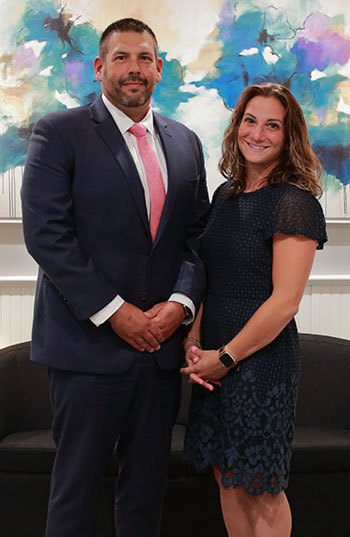‘Do I Have to Give my Spouse Back Their Kidney?’
As a Divorce Lawyer in Long Island, this headline is not as shocking to me as it may seem to you. Believe it or not, the argument over vital organs donated during the course of a parties’ marriage is not foreign to a divorce attorney from Long Island.
Perhaps the most well-known story in Nassau and Suffolk counties of a divorcing couple stuck between a rock and a hard place over a donated organ is that of Richard and Dawnell Batista. The pair married sometime in 1990 and had three (3) children. Dawnell was experiencing a seemingly endless battle with kidney failure and her illness was taking a toll on the couple’s relationship. After Dawnell experienced two (2) unsuccessful kidney transplants, Richard decided to donate one of his kidneys, and luckily he was a match.
Dawnell underwent her third and final kidney transplant in 2001, during which she received Richard’s kidney. While to the outside world Richard’s act of organ donation to his wife may seem selfless, he admitted to numerous reporters that while his main goal was to save Dawnell’s life, he also hoped she would feel indebted to him and be willing to work on their marriage.
Dawnell filed for divorce on Long Island, and an unhappy Richard argued that the kidney he donated to her during the course of their marriage was worth approximately $1.5 million. And he intended to receive a credit from her for every penny of its value.
What Happened Next?
Seems like a soap opera right? Well this case was argued in front of the Nassau County Supreme Court in 2009.
Richard Batista’s strongest argument was that “interspousal gifts made during the tenure of a marriage are marital assets subject to equitable distribution.” Batista v. Batista (2009). If that principle was controlling, Dawnell would be required to give Richard his kidney back. However, the Court looked more favorably upon New York Public Health Law Section 4307, which states that no person can acquire, for valuable consideration, any human organ for use in a human transplantation. Therefore, and luckily for Dawnell, the Court permitted her to keep her kidney, and denied Richard’s request to receive the value thereof.
What is the General Rule Regarding Gifts Made during the Marriage?
If you are searching for a Nassau County or Suffolk County, Long Island Divorce Attorney, it is unlikely one of your top concerns is whether or not you will get your kidney back. However, you may wonder if you are entitled to the $10,000 platinum and diamond ring you gave your wife or the Rolex you gave your husband. As stated previously, the law in New York states that “interspousal gifts made during the marriage constitute martial property subject to equitable distribution.” Ferina v. Ferina, 286 A.D.2d 472, 474 (2d Dep’t 2001). That means that upon establishing the value of all gifts you gave your spouse during the marriage, you will receive one-half, or fifty percent, of the value thereof. Because New York is an equitable distribution jurisdiction, you may receive this sum in either a distributive award or in marital property equivalent to the amount you are owed. You are not entitled to receive the actual item back.
How Can I Know the Value of Gifts I Gave my Spouse?
To obtain the most precise monetary value of gifts you gave your spouse during your marriage you may obtain an appraisal of those items. In most cases the cost of an appraisal is split between you and your spouse on an even basis, but you should discuss this point with your Long Island Divorce Attorney. In the event you do not wish to obtain an appraisal on the items, you and your spouse can stipulate, or agree, as to their value. If your matter proceeds to a trial, the testimony of both parties will be relevant to establish the value of any interspousal gifts.
During your Long Island Divorce you may not consider all the gifts you gave to your spouse, especially if you were in a long term marriage. But ignoring the value of all those items may mean you walk away from your Nassau or Suffolk County Divorce without taking into consideration a large value of the marital estate.
Receive a Free Consultation from an Experienced Divorce Lawyer, Long Island’s Robert E. Hornberger, Esq.
If you have questions about the your marital property and how it will be divided in your Long Island Divorce, you should consult an experienced Long Island divorce. Long Island’s Hornberger Verbitsky PC’s compassionate and experienced divorce attorneys can help. Call us at 631-923-1910 for a complimentary, confidential consultation or fill out the short form on this page and we’ll get right back to you
For more information about Property Division in your divorce, visit our Complete Guide to Dividing Property in Divorce.
Download our Free New York Divorce Guide
 Our 41-page “Guide to New York Divorce: What You Need to Know Before Hiring a Divorce Lawyer in New York” written by an experienced Divorce Attorney Long Island’s Robert E. Hornberger, Esq., provides you with real information on the divorce process and the laws it rests upon in the state of New York. This book will help give you a solid foundation upon which you can begin the process of making your family’s, life better. Download your Free Guide to New York Divorce here.
Our 41-page “Guide to New York Divorce: What You Need to Know Before Hiring a Divorce Lawyer in New York” written by an experienced Divorce Attorney Long Island’s Robert E. Hornberger, Esq., provides you with real information on the divorce process and the laws it rests upon in the state of New York. This book will help give you a solid foundation upon which you can begin the process of making your family’s, life better. Download your Free Guide to New York Divorce here.
GET YOUR FREE CONSULTATION TODAY
Call 631-923-1910 or fill in the form below

Horberger Verbitsky, P.C. partners Robert E. Hornberger, Esq. and Christine M. Verbitsky, Esq.
Get your complimentary consultation and case evaluation with our experienced Suffolk County divorce lawyers or family law attorneys today.
Your attorney will describe the many options available and determine together which is the right solution for you. By the end of this conversation, we’ll all understand how we can best help you to move forward.
No Cost or Obligation
There is no cost or obligation for this initial consultation. It is simply an opportunity for us to get to know each other, answer your questions and learn if Hornberger Verbitsky, P.C. is the right law firm for you. Give us a call at 631-923-1910 or fill in the short form below for your free consultation and case evaluation.
All Fields Are Required












